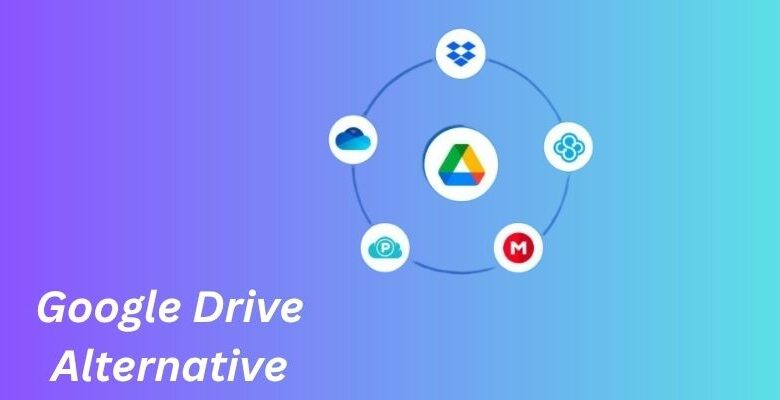
Google Drive has been the steady workhorse for many people. It stores documents, holds shared folders, and keeps projects moving. Still, it is not always the best fit for every workflow or every team. Storage limits can feel tight.
Shared permissions can get confusing. Sometimes the interface feels like it is thinking about something else while you are trying to work.
The good news is that there are other tools that handle files with more clarity, stronger privacy, or simpler collaboration. The list below highlights options worth considering in 2025.
Each one has strengths that might suit different habits and working styles.
Read also: Top 10 Document checklist tools in 2025
12 Best Google Drive Alternatives:
There are several amazing Google alternatives available that you can try out for storing, managing, and sharing files online. Here are the 12 best ones:

1. Microsoft OneDrive
Microsoft OneDrive works well for anyone already using Windows or Microsoft Office. It feels familiar and stays out of the way when saving and organizing files. The syncing is steady and works quietly in the background.
For teams that rely on Word, Excel, and PowerPoint, OneDrive brings everything together in one place.
It is a practical choice for people who value convenience and a smooth link with tools they already use. The mobile experience is also reliable and simple to navigate.
Key features:
- Direct integration with Windows and Microsoft Office
- Easy file syncing across devices
- Clear permission controls for shared folders
- Reliable mobile apps for on-the-go access
Dropbox
Dropbox has been around long enough to feel like an old friend in the world of cloud storage. It focuses on simple syncing across devices and does it well. Many teams like it because files update quickly and accurately.
The interface is uncluttered and easy to learn. Dropbox also offers smart tools for shared workspaces, which help when multiple people need to edit or review the same material. It is a steady and dependable option for both personal and professional use.
Key features:
- Fast and consistent file syncing
- Simple and intuitive interface
- Strong collaboration features for teams
- Works smoothly across different operating systems
TeraBox
TeraBox offers a large amount of free storage, which is what draws many users in. It provides cloud space for photos, videos, and everyday files without much setup required.
The interface is simple and easy to understand, and uploads run quietly in the background. However, it is worth noting that TeraBox is operated by a company based in China, which may raise privacy questions for some users.
It works best for storing non-sensitive files and general backups where convenience matters most.
Key features:
- Generous free storage allowance
- Simple and easy-to-navigate interface
- Automatic backup support
- Works across desktop, web, and mobile devices
pCloud
pCloud stands out for its flexible storage options and easy access across devices. It offers the option to pay once for lifetime storage, which appeals to people who prefer long-term planning.
Files can be streamed directly without needing to download them, which helps with music or video libraries. pCloud also offers secure folder encryption for sensitive documents.
It is a calm and efficient space to keep personal archives and shared files organized.
Key features:
- Lifetime storage option available
- Built-in encrypted folder for private files
- File streaming without downloading
- Works across desktop, web, and mobile
Box
Box focuses on secure collaboration for businesses and organizations. The interface is straightforward and designed to support structured workflows. Teams can comment on files, assign tasks, and maintain version history without confusion.
Box also offers strong compliance and data protection features, which make it appealing for healthcare, legal, and corporate environments. While it can be used personally, its strengths show most clearly in group settings where information needs to move smoothly and safely.
Key features:
- Advanced collaboration and workflow tools
- Strong privacy and compliance features
- Clear version control and task assignment
- Integrates with many business software tools
Proton Drive
Proton Drive is built with privacy at the center. Files are encrypted before they leave the device, which keeps personal information safe from outside access.
The interface is simple and calm, with no unnecessary elements competing for attention. It is well-suited for people who want to store important documents securely without extra complication.
Proton Drive is developed by the same team behind Proton Mail, known for a strong commitment to user privacy and open security standards.
Key features:
- End-to-end encryption by default
- Independent company focused on privacy
- Clean and distraction-free interface
- Works smoothly with Proton’s ecosystem
Sync.com
Sync.com places a strong priority on file privacy and data control. All files are encrypted in a way that even the company cannot view them.
The layout is simple and does not require a steep learning curve. Teams can share documents confidently using password-protected links and clear permission settings.
This solution works well for people who want typical cloud storage features without giving up security or ease of use. It is a thoughtful balance of function and protection.
Key features:
- End-to-end encryption for all stored files
- Secure link sharing with custom permissions
- Simple and uncluttered interface
- Accessible across web, desktop, and mobile
Icedrive
Icedrive has a modern look and an easy approach to file management. Storage mounts like a local drive, which makes it feel familiar to use.
The encryption setup keeps files safe without adding extra work for the user. Icedrive is known for smooth performance and a clean layout that avoids unnecessary complexity. It also offers lifetime storage options similar to pCloud.
It suits individuals who appreciate a quiet, streamlined space for personal and creative work.
Key features:
- Clean and modern interface
- Built-in encryption with minimal setup
- Option for lifetime storage plans
- Accessible across devices with stable syncing
Koofr
Koofr is a tidy and lightweight storage service. It connects with other cloud platforms, which allows users to manage files from multiple sources in one space.
The interface keeps things simple and avoids clutter. Koofr also includes helpful search and organization tools that make it easier to find older documents. It is suitable for people who value calm, predictable file management without extra noise. Its storage options are flexible and easy to adjust as needs change.
Key features:
- Connects with other cloud accounts
- Clean and simple interface
- Helpful search and organization tools
- Flexible storage plans
Nextcloud
Nextcloud is an open-source platform that gives users full control over their data. Instead of relying on a centralized cloud, files are stored on a server chosen by the user. This works well for people and organizations who care deeply about ownership and customization.
The interface includes tools for document editing, chat, and calendar sharing. While setup requires some technical familiarity, the flexibility can be rewarding. Nextcloud creates a workspace that can be shaped to match specific needs.
Key features:
- Full ownership and control over stored data
- Open-source and community-supported
- Built-in collaboration and communication tools
- Highly customizable setup
ownCloud
ownCloud is similar to Nextcloud in its open-source nature and focus on data control. It allows users to host their own files on a personal or company server. The platform is stable and known for reliable syncing.
Many organizations use ownCloud to ensure private handling of sensitive information. While it requires setup and ongoing maintenance, it provides a sense of security and independence that hosted services cannot match.
It suits users comfortable with a hands-on approach.
Key features:
- Self-hosted data storage
- Open-source platform with active development
- Reliable file syncing across devices
- Strong privacy and data governance
Seafile
Seafile is designed to keep syncing fast and efficiently. It works by breaking files into smaller parts so updates happen quickly. This is useful for teams that work with larger documents or frequent changes. The interface is clean and practical, with collaboration options that support shared libraries and version tracking.
Seafile can be self-hosted or used through a cloud service. It appeals to people who value speed and structure in their daily workflows.
Key features:
- Fast and efficient syncing performance
- Shared libraries for team collaboration
- Clear version tracking
- Option for cloud or self-hosted deployment
Conclusion:
Choosing a Google Drive alternative is less about abandoning familiarity and more about finding a space that fits how you work. Some options shine with strong privacy, others with smooth collaboration or generous storage.
The right choice depends on the files you handle, the devices you use, and the level of control you want. Exploring these twelve alternatives in 2025 gives a good sense of what’s out there, making it easier to pick a tool that feels both capable and quietly reliable.



